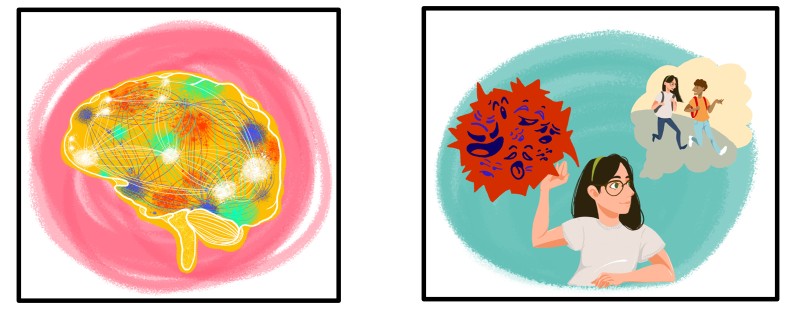Depression in young people: free, brief, and self-administrable interventions can help
Depression among young people is a serious problem. Young people with depression do not always have easy access to care. During the COVID-19 pandemic, the risk of depression among young people is thought to have increased. Researchers Jessica Schleider et al. (2021) went in search of easily accessible and fast-acting interventions for this target group.
Brief self-administrable interventions
They set up a randomized controlled trial online, in which they tried several single-session interventions (Single-Session Interventions, SSI's). These SSI's could be taken on the computer by the young people and lasted half an hour.
Behavioral or Mindset vs Control Group
The study included young people with increased depression (N = 2,452, ages 13-16). They were randomly assigned to one of 3 SSIs:
- Behavioral Focus: A Behavioral Activation SSI
- Focusing on a growth mindset: an SSI that teaches that traits are malleable
- A supportive control (an active control group) ( https://osf.io/u4axs/ .)
Behavioral SSI
The Behavioral SSI (BA-SSI) included 5 elements: (1) An introduction to the rationale of the program: that participating in values-based activities that bring pleasure and achievement can combat low mood and low self-esteem; (2) Psychoeducation about depression, including how behavior shapes feelings and thoughts; (3) An assessment of life values, where young people identify key areas (family relationships, friendships, school, or hobbies) from which they draw (or ever draw) pleasure and meaning; (4) Creation of an activities “action plan”, in which young people identify 3 activities (from pre-generated lists) and personalize (in guided exercises) to strive for change; and (5) an exercise in which young people write about benefits that can come from participating in each activity; an obstacle that could prevent them from carrying out the activities; and a strategy to overcome identified obstacles. Intervention materials are available here:https://osf.io/ch2tg/
Growth Mindset SSI
The growth mindset-directed SSI (GM-SSI) included: (1) an introduction to the brain and a lesson on neuroplasticity; (2) Testimonials from older youth describing their view that traits are malleable due to brain plasticity; (3) Further stories from older youth, describing times when they used “growth mindsets” to persevere during social/emotional setbacks; (4) Study summaries detailing how/why personality may change; and (5) An exercise where young people take notes for younger students, using scientific information to explain people's ability to change. Intervention materials are available here: https://osf.io/a9uv2/
Findings
The researchers tested the effects of each SSI immediately after the intervention (hopelessness, agency) and 3 months after the intervention (depression, hopelessness, agency, generalized anxiety, COVID-related trauma, restrictive eating). The effects (compared to the control group) were:
- both active SSIs reduced depressive symptoms at 3 months (ds = 0.18);
- immediately and after 3 months, helplessness decreased (ds = 0.16-0.28)
- the agency increased immediately after the intervention (ds = 0.15-0.31)
- restrictive eating decreased over 3 months (ds = 0.12-17).
- several differences between active SSIs emerged.
The results confirm the utility of free online SSIs for high symptom adolescents, even in the high stress COVID-19 context.

Comments